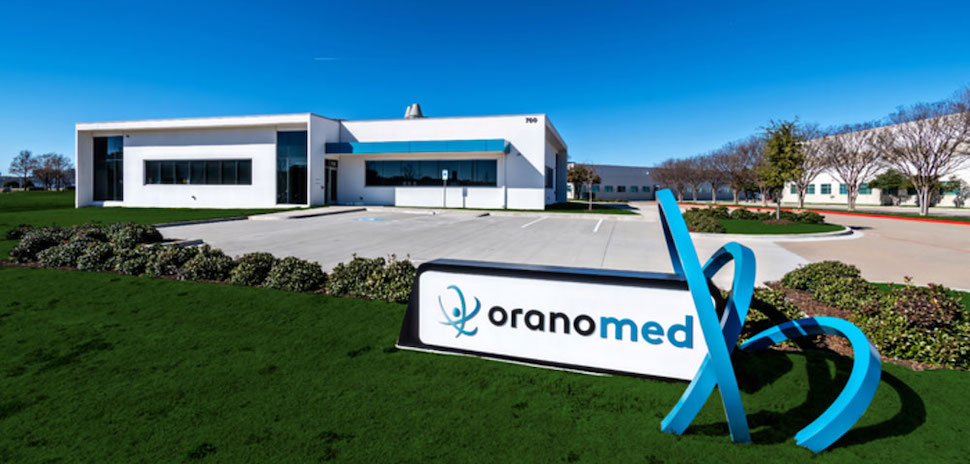Plano-based Orano Med SAS has announced a collaboration with Oxford, England’s Orbit Discovery Ltd. to discover specific peptide receptor radionuclide therapies against cancer cells and to advance the development of novel radiopharmaceuticals.
Orano Med is a biotechnology company developing Lead-212 (212Pb) Targeted Alpha Therapy against cancer, while Orbit is a leader in the discovery of therapeutic peptide hits where PRRT combines a protein that binds to the tumor cell receptors with a radioactive element called a radionuclide.
“Since the inception of Orano Med, we’ve recognized the value of collaboration,” Orano Med CEO Julien Dodet said in a statement. “In our strategy to develop and deliver 212Pb Targeted Alpha Therapy for cancer patients, we’re delighted to work with Orbit Discovery and leverage its technology and expertise in peptide ligand discovery to build our pipeline of radiotherapies.”
Deploying Orbit’s bead-based peptide display engine
Under the terms of the agreement, the companies said that Orbit will deploy its bead-based peptide display engine to discover peptide leads specific to targets related to specific tumors.
According to Orano, radiogligand therapies rely on a simple concept of combining the ability of biological molecules such as peptides to target cancer cells with the short-range cell-killing capabilities of radioisotopes.
Peptides are short chains of amino acids that are linked by peptide bonds.
The company said that approach results in “an increased cytotoxic potential toward cancer cells while limiting toxicity to nearby healthy cells.” It also provides new potential options for patients with hard-to-treat cancers. The global market of targeted radiotherapies is expected to grow at a CAGR of 30% between 2023 and 2030, Orano said.
Orano added that the collaboration will harness the capabilities of Orbit’s peptide display engine to identify peptide candidates specific to tumor-associated targets. The proprietary technology enables the screening of large peptide collections through the combination of DNA encoded libraries and bead-based presentation.
Orbit said its peptide display engine is uniquely equipped to address soluble targets and targets in situ, both on and in cells, allowing for significantly faster discovery times of relevant peptide leads based on affinity screens and/or functional screens.
Orano Med said it will focus on subsequent development of the peptides for clinical use after conjugation with lead-212, which it said is one of the most promising alpha emitter isotopes for use in radioligand therapy.
“We’re delighted to continue expanding our existing portfolio of partners by collaborating with Orano Med, who have a strong track record of discovering novel radiopharmaceuticals,” Orbit CEO Dr. Neil Butt said in a statement. “We’re very proud of our proprietary screening platform at Orbit and acknowledge its role in empowering the next wave of peptide therapeutics.”
![]()
Get on the list.
Dallas Innovates, every day.
Sign up to keep your eye on what’s new and next in Dallas-Fort Worth, every day.






























